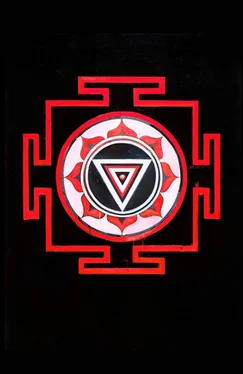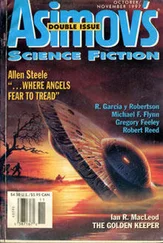‘They’re Tamils,’ I said, watching them drift across lawns lit by hovering dew. ‘Tamils are like the Irish. They’re everywhere. You’ll find hard-working Tamils in Normandy, if you look hard enough.’
‘How do you know they’re Tamils?’ Horst asked suspiciously.
I turned to face him. I wanted another coffee.
‘They’re doing the dirty work,’ I said.
‘Oh, yeah, yeah,’ he laughed.
It wasn’t funny. I wasn’t laughing. He pinched his laugh to a frown.
‘Which agency did you say you’re with?’
‘I didn’t say.’
‘You’re a real secretive guy, aren’t you?’
‘The shooting is wallpaper. The real war is always between us, the journalists.’
‘What are you talking about?’ Horst asked nervously. ‘I just asked you who you’re with, that’s all.’
‘See, if I make friends with you, and I break a story, and then I find out you stole it from me, I’d have to hunt you down and beat you up. And that’s not good.’
He squinted at me. His eyes flared.
‘ Reuters! ’ he said. ‘Only you Reuters pricks are so stingy with a story.’
I wanted another coffee. Ankit appeared at my elbow. He was carrying a small glass of something.
‘I thought that a fortification might be required, sir, if you will forgive the impertinence,’ Ankit said. ‘The road you walk this morning is not kind.’
I drank the glass, discovering that it was sherry, and damn good.
‘Ankit,’ I said, ‘we just got related.’
‘Very good, sir,’ Ankit replied equably.
‘You there,’ Horst said to Ankit. ‘Can you find out, please, if any of these fellows have work permits for outside of Sri Lanka?’
I held Ankit’s response with a raised hand.
‘Are we gonna get going, Horst, before the bears wake up?’
‘Bears?’ he said, making it sound like beers . ‘There are no bears. It’s tigers, not bears. The Tamil Tigers. They’re absolutely crazy, those fucks. They all carry suicide capsules, in case they’re caught.’
‘You don’t say.’
‘They don’t seem to realise that when they do that, commit suicide like that, they make the other side even more determined to throw them out of the country.’
‘Are we gonna do this?’
‘Yeah, yeah, sure. Don’t set fire to your pants.’
‘What?’
‘Don’t set fire to your pants,’ he repeated crossly, crossing the lawn.
‘Already with the rules,’ I said, following him out onto the main road.
Fighting in Trincomalee had ceased, and a slender ceasefire had prevailed for weeks. The German staff of Der Spiegel had returned to their home offices for other assignments. Horst, an Austrian stringer, had stayed on.
He was holding out for a new story: one that he could break without competition. He was hoping, in fact, that the Tamil Tigers would launch an offensive in the area, and that his faded-blue eyes would be the first eyes on a new war.
He was a tall, healthy, well-educated young man, in love with a girl, probably a nice girl, who lived on a farm in Normandy, and he was hoping for more war in Sri Lanka. Journalism , Didier once said to Ranjit, the media baron, the cure that becomes its own disease.
‘You haven’t got a camera?’ Horst asked, after we’d walked and talked about Horst for about fifteen minutes.
‘In my experience, checkpoints are allergic to any cameras but their own.’
‘True,’ he agreed, ‘but there was a severed head on the road, yesterday. The first one for a month.’
‘Uh-huh.’
‘And… if we see another one today… I’m not going to share the pictures.’
‘Okay.’
‘It’s not my fault that you left your camera.’
‘Got it.’
‘Just, you know, so we’re straight on that, okay?’
‘I don’t want your pictures of severed heads, Horst. I don’t even want to think about them. If there’s another severed head on this road, he’s all yours.’
There was another severed head on that road, only fifty metres further along.
At first, I thought it was a trick: a pumpkin, or a squash, shoved onto a pole as a macabre joke. In a few steps, I saw that he was a dead kid, maybe sixteen or seventeen.
His head was propped on a bamboo pole, driven into the ground so that the boy’s dead face was face to face with any living face that passed, on the main road.
The eyes were shut. The mouth was wide open.
Horst was adjusting his camera.
‘I told you so,’ he said. ‘I told you so.’
I started to walk along the road. He called out to me.
‘Where are you going?’
‘Catch me up.’
‘No, no! It’s not safe, alone on this road. That’s why I wanted to walk together. You should stay with me. I mean, for your safety.’
I kept walking.
‘Two, in two days!’ Horst said, as distance lost him. ‘Something’s up. I can feel it. I knew I was right to stay.’
He was clicking his camera.
Click-clack . Click-clack .
Killing the kid was a crime, but spiking his head was a sin, and sin always demands expiation. My heart wanted to find a way to return the kid’s head to his parents, help them find the rest of him, somehow, and lay him to rest.
But I couldn’t listen to my heart. I couldn’t even lay his dead young head on the earth, which every instinct inside me cried to do. I had a vest full of gold and passports, and my own passport was as false as my journalist accreditation. I was a smuggler, on a mission, and I had to walk away.
Alone on the road I grieved for that kid, whoever he was, whatever he’d done. I walked on, finding my hard face again, trying to lose all thought of it in the jungle, bright in a brief halo of sunlight between storms.
Trees were plentiful, growing tall and strong in nurseries of shrubs and plants, some waist-high, some reaching to my shoulders.
The leaves shivered drops of the last rain onto the thick roots of the trees: devotees pouring scented oil on the feet of tree-saints, whose raised-arm branches, and million-hand leaves had prayed the storm from the sea. Without trees to pray for it, there’s no rain , Lisa once said to me, as we’d rushed out to enjoy a warm, monsoon rainstorm.
Winds from the sea pacified storm-shaken trees. Branches dipped and swayed, foaming leaves waving with the sound of surf on the shore of the sky. Birds hovered and swooped, vanishing in walls of green, and darting out again, their shadows glittering on the wet road.
Nature was healing me, as Nature does, when we let it. I stopped grieving for the lost kid beside the road, and the lost kid inside me, and I stopped saying the words severed head .
A car approached me from the north. It was a battered white sedan, with the headlights covered in stars of black tape. The driver was a woman. She was chunky. She was short. She was thirty. She was wearing a sky-blue hijab.
She stopped beside me and leaned over to roll down the window.
‘What the fuck do you think you’re doing?’ she demanded.
‘I -’
‘Don’t tell me.’
‘But, you just asked -’
‘Get in the car.’
‘Who are you, again?’
‘Get in the car.’
I got in the car.
‘You’re compromised,’ she said, a pinched frown of contempt looking me up and down.
‘ Salaam aleikum ,’ I said.
‘You’re compromised,’ she repeated.
‘ Salaam aleikum ,’ I said.
‘ Wa aleikum salaam ,’ she replied, squinting at me angrily. ‘We’ve got to get out of here.’
She drove off but in a few seconds we saw Horst, still standing beside the kid’s head, still trying to get that perfect shot. She wanted to drive on but I stopped her, some ten metres past the journalist.
Читать дальше












